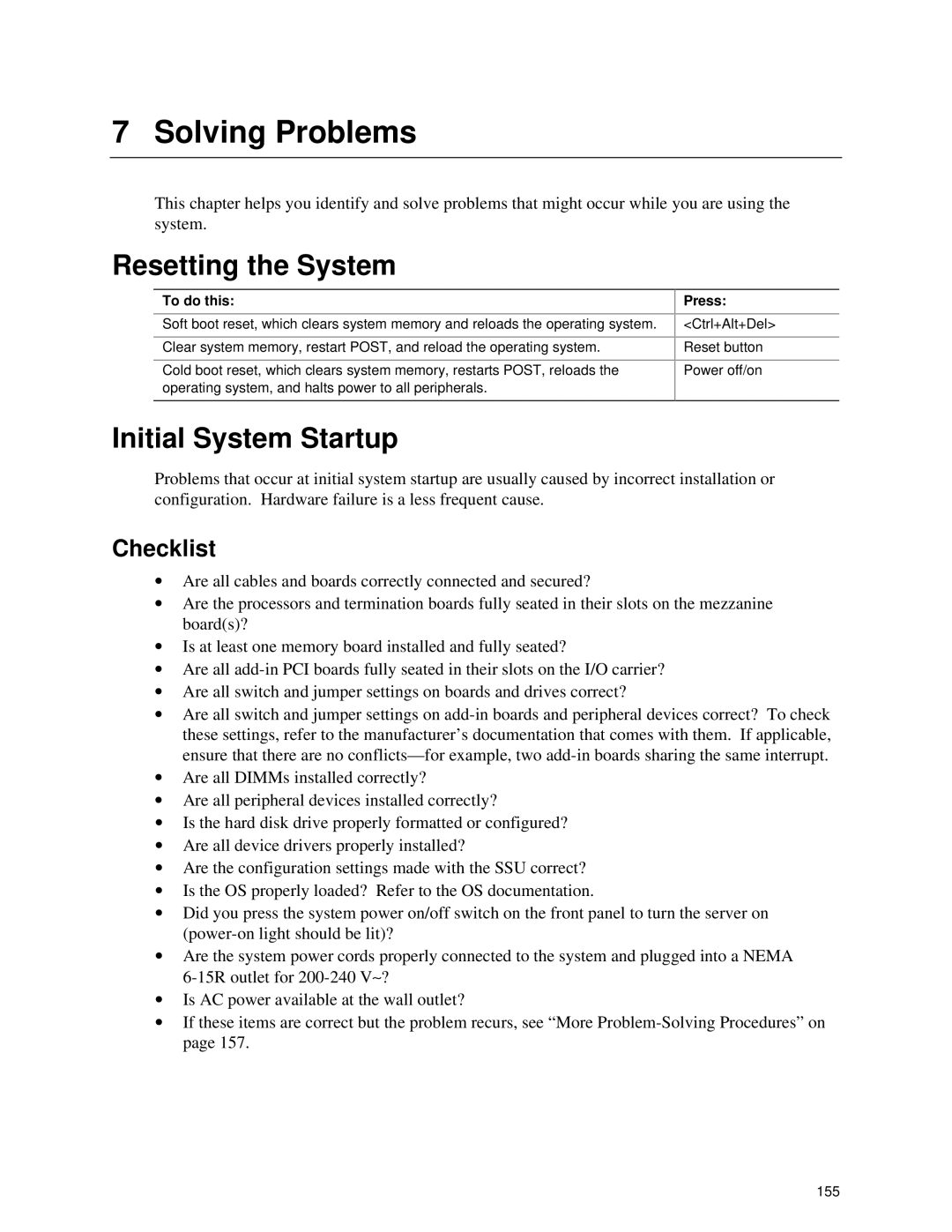
7 Solving Problems
This chapter helps you identify and solve problems that might occur while you are using the system.
Resetting the System
To do this:
Soft boot reset, which clears system memory and reloads the operating system.
Clear system memory, restart POST, and reload the operating system.
Cold boot reset, which clears system memory, restarts POST, reloads the operating system, and halts power to all peripherals.
Press:
<Ctrl+Alt+Del>
Reset button
Power off/on
Initial System Startup
Problems that occur at initial system startup are usually caused by incorrect installation or configuration. Hardware failure is a less frequent cause.
Checklist
∙Are all cables and boards correctly connected and secured?
∙Are the processors and termination boards fully seated in their slots on the mezzanine board(s)?
∙Is at least one memory board installed and fully seated?
∙Are all
∙Are all switch and jumper settings on boards and drives correct?
∙Are all switch and jumper settings on
∙Are all DIMMs installed correctly?
∙Are all peripheral devices installed correctly?
∙Is the hard disk drive properly formatted or configured?
∙Are all device drivers properly installed?
∙Are the configuration settings made with the SSU correct?
∙Is the OS properly loaded? Refer to the OS documentation.
∙Did you press the system power on/off switch on the front panel to turn the server on
∙Are the system power cords properly connected to the system and plugged into a NEMA
∙Is AC power available at the wall outlet?
∙If these items are correct but the problem recurs, see “More
155
